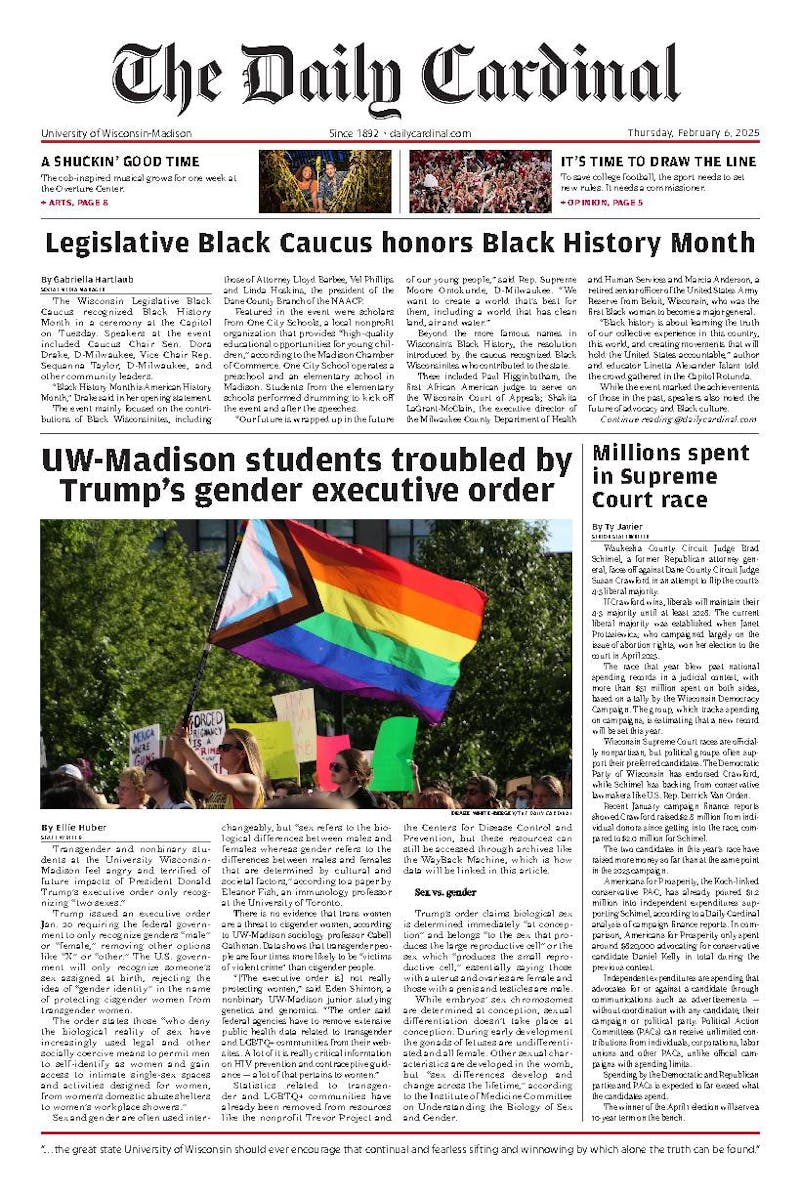Normally I'm a sucker for sustainability initiatives, but something about the $100,000 being pulled from the city of Madison's reserve fund to install 350 rental bikes has me a bit uneasy.
Last Tuesday, the city council met to discuss a biking initiative proposed by Mayor Dave Cieslewicz that will lock the city in a three-year, $300,000 plan to install rental bikes at 35 kiosks throughout the city with the help of the bike-rental service B-Cycle.
B-Cycle allows travelers to use their credit cards to rent bikes for periods of time ranging from a half hour to a full day and return them to kiosks throughout the city. The company is run in part by Trek Bicycle, according to the program's website.
Trek Bicycle also coincidentally helped fund Cieslewicz's trip to Europe this past spring so he and other city and business officials could take a look at successful bicycling communities in Germany and the Netherlands.
Do I smell a quid-pro-quo agreement? After all, the same company that paid for the mayor's educational trip abroad is now getting $300,000 from said mayor? Isn't that ethically questionable? Isn't there a certain term for that? Yes, lobbying sounds about right.
In fact, just last Monday The Wisconsin State Journal reported that former Madison Alder Brenda Konkel filed a list of complaints discussing a violation of city lobbying laws. But that's a separate issue. What remains at the forefront of this debacle are the practical reasons for why this bike campaign is a waste of taxpayer money.
First, according to the state journal, Madison has not finalized its rates, but Denver, Colo.—a city already implementing B-Cyle—offers the program at $65 a year while a full day's use costs $5. And if something breaks on the bike, you may have to pay for it.
Alternatively, Madison's own Budget Bicycle runs the Red Bike program that allows anyone in Madison to borrow a used, red spray-painted bike and a lock with the mere security deposit of a valid credit card. As long as the bike is returned any time within the six-month loan period, it remains free to the user with the bonus of free maintenance throughout the process, should anything go awry.
Second, with the B-Cycle program you have to return the bike within 24 hours, and if you keep your bike for more than three days, the company considers it lost and you are charged to replace it. These aren't very user-friendly deadlines, especially for the price.
The 24-hour limit is impractical for bike-riding students who live far off campus. In this case, they benefit more by purchasing or renting their own bicycles. Which tailors this program to tourists who want to partake in an activity other than drive through the city.
Third, B-Cycle does not provide locks for users besides the kiosks, so if you're going anywhere that's not directly next to a kiosk, you still either have to walk a ways to your destination carry a bike lock at all times, or risk getting the bike stolen, which you will undoubtedly have to pay for.
And if you're making the effort to travel to a kiosk, why not simply walk to your destination and save yourself the money?
Granted, there are interesting features of the B-Cycle program. Digitally, B-Cycle keeps track of your duration of travel, number of calories burned and carbon footprint through your B-Cycle account online, but it is still not worth the money and hassle for short travel.
Maybe bike-sharing programs that cost money are good for heavy-tourist areas of Europe, but I don't think Madison truly has enough tourism traffic to make back the funds spent on this project. Most people who make the effort to obtain a bike are traveling farther and to unique distances, meaning the chances of reaching another kiosk could be slight for the average rider.
And I didn't even mention that this program would probably remain dormant for four to six months out of each year as winter weather deters those unwilling to brave Wisconsin's frigid conditions. Naturally, the program will not make nearly as much money during this half of the year and is yet another reason to avoid the investment altogether.
Taxpayer money would be better spent adding more bike lanes and helping further the free bike-sharing program, increasing bike traffic and making traveling easier for motorists and bicyclists alike.
I'm all for biking; it's cheap, it saves fossil fuels and it's good for the environment, but there are other ways to take advantage of this alternative mode of transportation that don't require a vacation overseas.
Jaime Brackeen is a sophomore majoring in journalism. We welcome all feedback. Please send responses to opinion@dailycardinal.com.





